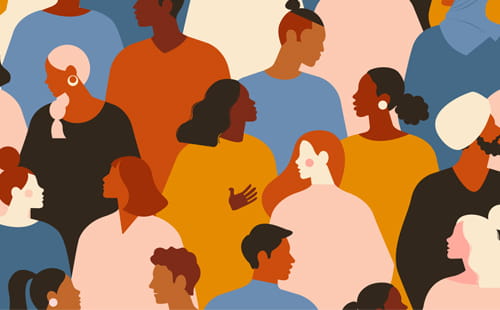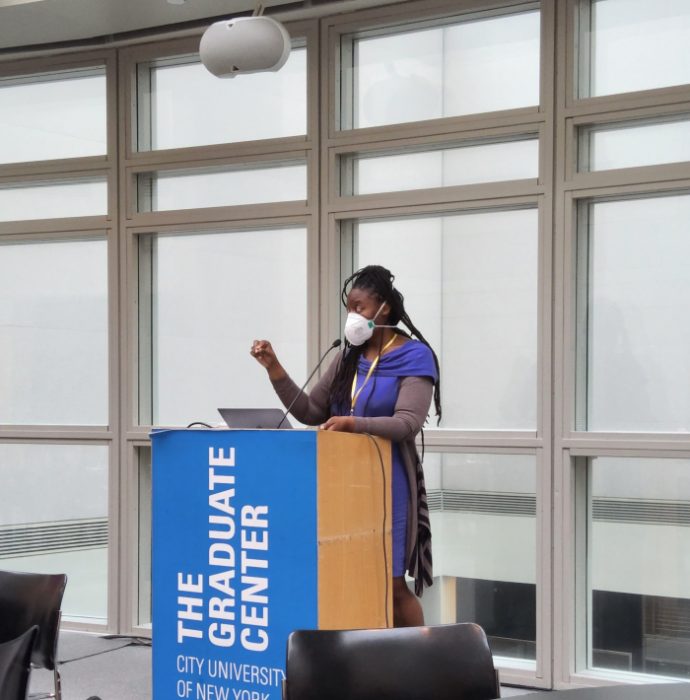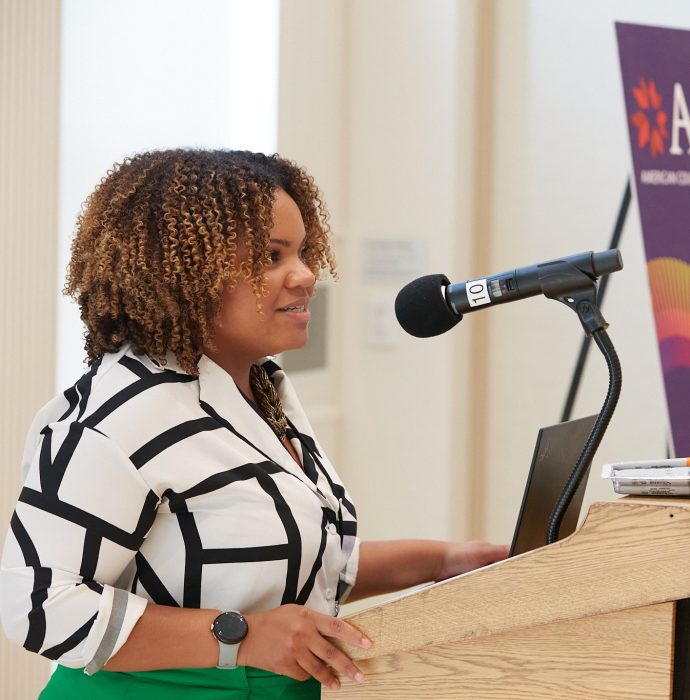
The ACLS Intention Foundry (IF) is a series of multi-day in person and virtual workshops focused on advancing equity, inclusion, and justice within the academy. Scholars, college and university administrators, and academic society leaders come together to identify and develop actionable solutions to social justice issues. IF is made possible by generous funding from the Mellon Foundation. Designed by Director of IDEA (Intentional Design for an Equitable Academy) programs, Dr. Jovonne Bickerstaff, and co-led by Program Officer, Dr. Keyanah Nurse, IF fosters partnerships, creative speculation, and collaborative problem-solving.
2023 marked the final slate of IF convenings, welcoming 9 new society leaders, 23 scholars, and 9 area university administrators, as well as 14 society leaders and 11 scholars from past cohorts. Holding to IF’s collaborative method, we concluded with Town Hall sessions to get participants’ insights on pilots. Having convened 55 leaders from our 80 member societies and 107 scholars in three years, IF’s next stage will focus on distributing modest funding for societies for extended engagements with DEIJ work as well as launching a series of incubation working groups for IF scholars in 2024.

A big part of the creation of the Intention Foundry was making sure… scholars of color, first generation scholars, scholars who are marginalized and not well-supported in the academy… were centered– not just at the table, but instrumental in setting the agenda.
Jovonne Bickerstaff, Director of IDEA Programs
Transforming Intentions into Impacts
The Intention Foundry lays the groundwork for participants to collectively imagine what is possible. At its outset, scholars present their aspirational change initiatives, or “moonshots,” to promote anti-racism, equity, and justice in their respective work and communities. Facilitators, from across all ACLS departments, provide frameworks to deepen group discussions in a focused way. With a focus on problem-setting, the necessary, yet under-appreciated, precursor to problem-solving, the participants begin to develop the seeds of their interventions.
Spring Sessions
- Evaluate intentionality and ethics of care
- Reframe the relationships between diversity, equity, and inclusion
- Discuss technical vs. adaptive challenges
Summer Sessions
- Strategize first steps in problem-solving
- Examine constituencies – anticipate anxieties and points of resistance
- Receive feedback from university leaders
The 2021 Intention Foundry helped amplify successful work and devise new coordinated strategies for anti-racism efforts that support historically and systemically disadvantaged groups in academia, especially Black, Indigenous, Latinx and first-generation scholars. We engaged in collaborative problem-solving and moved fruitful ideas from planning to pilot and implementation.
Brenda Martinez, PhD.
Towards a New Academy
IF positions scholars from historically and systemically marginalized groups to set the agenda for change in the Academy. It is one part of how ACLS is broadening its work beyond fellowships to accelerate change necessary for the humanities and social sciences to thrive. ACLS is focused on providing more pathways to success for scholars who have less access to support systems and networks. This means creating space for scholars to build alliances and relationships across institutions and fields of study. It requires the kind of wide-ranging and difficult conversations that IF cultivates.

Precarity underscores our interconnectedness and interdependency, but it does so by way of relying on individualism as a way of being and competition as a way of engaging. It is the resultant and current state of affairs when we do not employ an ethics of care that centers wellbeing, justice, and collective flourishing as outcomes.
Keyanah Nurse, Program Officer for IDEA (Intentional Design for an Equitable Academy)
The Intentional Design for an Equitable Academy (IDEA) unit draws on human-centered design as a methodology for developing activities and convenings where we can re-envision academia’s culture, policies, and practices. Led by IDEA Director Jovonne Bickerstaff, the unit includes the Intention Foundry (IF), the ACLS Digital Justice Grant Program, and the Leadership Institute for a New Academy (LINA). ACLS takes this moment as a call for cultivating opportunities for reparative intervention and transformative engagement that further ACLS efforts to enhance equity, justice, and well-being in the academy.





